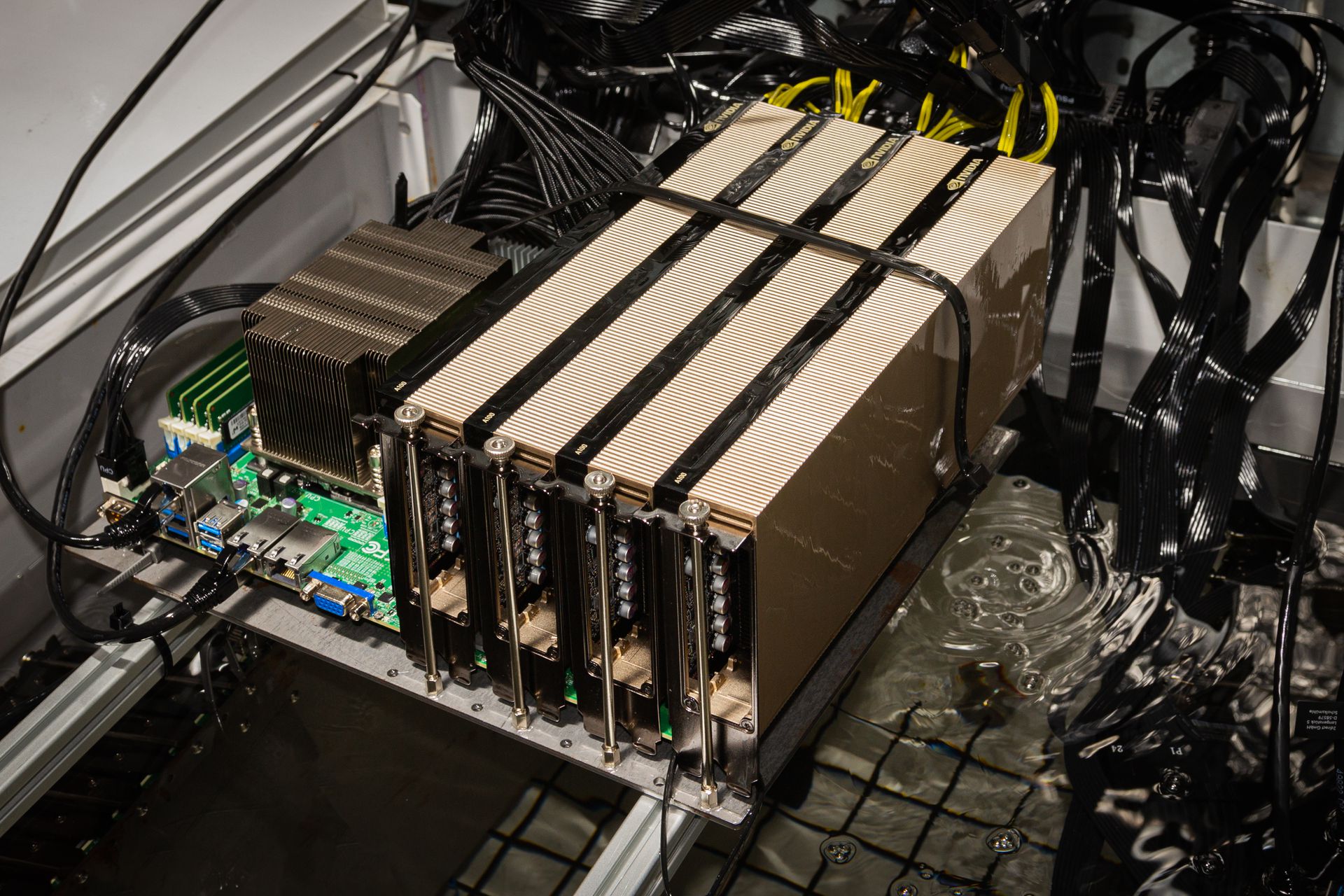Spiria Tech Recap - № 370 - Canary in a code mine, GitHub 2FA, Project Kuiper, and a lot of artificial intelligence

The future of Windows in the new Canary channel

Serinus canaria. © iStock.
Microsoft is launching a new channel, Canary, for its Windows Insider program. This channel previews Windows versions that have just been built in Microsoft’s labs. Testers can now plumb the depths of the major changes to the kernel, APIs, and other core levels of Windows. Versions appear more frequently on Canary than on the current Dev channel, but they are, predictably, less stable. Microsoft therefore recommends this channel only to very tech-savvy users, as the new functionalities are usually still in the early stages of the development cycle. Though the attendant documentation will be light, Microsoft will publish blog posts to inform testers of key release features. Amanda Langowski, head of the Windows Insider program, clarifies that some changes being tested on the Canary channel could very well never see the light of day.
This puts the number of Windows Insider channels to four:
- Canary includes the latest modifications to a platform at the beginning of its development cycle. The versions could be unstable and they are meant for highly proficient users.
- Dev features the latest Windows preview versions with their new features. Here too, the versions could be unstable and they are meant for enthusiasts.
- Beta versions of Windows are more stable than those on the Dev channel. Microsoft has validated these builds’ updates.
- Release Preview gives a preview of fixes and new features about to be released. The builds are rock solid and meant for commercial users to test changes just before roll-out.
⇨ The Verge, Tom Warren, “Microsoft will now preview the future of Windows with new Canary channel.”
⇨ Ars Technica, Andrew Cunningham, “New ‘Canary’ channel will showcase more-experimental, less-stable Windows builds.”
2023-03-06
GitHub is out to protect you

© iStock.
Starting March 13, GitHub will require all developers who contribute code to GitHub.com to use one or more forms of two-factor authentication (2FA). This will expand to all accounts, as 2FA provides effective protection against social engineering and other common types of attacks, says the company’s security officer. Only 16.5% of active GitHub users use 2FA, but by the end of 2023, GitHub will mandate 2FA for all contributing developer accounts. Over the past months, GitHub has gradually extended this requirement to specific user types, such as maintainers of packages with more than 1 million weekly downloads or 500 dependents.
⇨ Ars Technica, Samuel Axon, “The time has come: GitHub expands 2FA requirement rollout March 13.”
2023-03-10
Microsoft 365 gets a copilot

Human copilot. © iStock.
Microsoft owns GitHub, whose Copilot function assists developers in coding more quickly. Microsoft is now applying a similar function more globally to most Microsoft 365 applications. The assistant, also called Copilot, will help users generate documents, emails, presentations, and much more. Powered by OpenAI’s GPT-4, it will ride along in the sidebar as a chatbot that Office users can call on to write text in documents, create PowerPoint decks based on Word docs, and even manipulate Excel pivot tables.
Shortly after introducing its AI-driven chatbot in Bing, Microsoft is quickly moving to integrate OpenAI’s large language models into its applications. Microsoft’s news release comes just a few days after Google announced similar functionalities in Google Workspace, such as AI-assisted text creation for Gmail and Docs.
⇨ The Verge, Tom Warren, “Microsoft announces Copilot: the AI-powered future of Office documents.”
2023-03-16
Claude friendlier than ChatGPT

© iStock.
OpenAI might enjoy the support of large tech companies, but so does Anthropic, founded by OpenAI ex-employees. Google invested USD 300 million in Anthropic in February, which is now releasing Claude, its own chatbot. It writes CVs, answers questions, pads your writing, and generates code. You can fine-tune the tone, personality and behavior of the chatbot, which seems more nuanced than the Bing chatbot based on ChatGPT-4. Claude was designed to be “helpful, honest, and harmless”, and won’t dip into the Internet. Anthropic is also releasing Claude Instant, a cheaper, faster and lighter version than its bells-and-whistles counterpart. Companies such as Notion, Quora and DuckDuckGo have already given Claude a spin in the months prior to its launch. You can get information on both models’ pricing and on signing up for access to Claude here.
⇨ The Verge, Emma Roth, “Google-backed Anthropic launches Claude, an AI chatbot that’s easier to talk to.”
2023-03-14
Amazon satellite internet comes in all sizes in 2024

Project Kuiper. © Amazon.com.
Amazon revealed three satellite broadband user terminals and announced that it will start offering Kuiper-based internet service in 2024. The speed of the standard terminal, designed for residential use and small businesses, will reach up to 400Mbps. But, as competitor Starlink is seeing, the speed will actually depend on available satellites and network congestion in each region. Amazon’s press release isn’t differentiating between download and upload speeds, but upload speeds will likely be slower than download speeds. The speed of an upcoming smaller terminal will get up to 100Mbps, while a terminal meant for large-business and government use will reach 1Gbps. Amazon can manufacture the standard terminal for under USD 400, though it has not specified the retail price of its terminals or monthly service.
Since 2019 at least, Amazon’s Project Kuiper team has been working on a low-orbit satellite network that will eventually compete with SpaceX’s Starlink service, which is up and running. The US Federal Communications Commission gave Amazon the approval to launch 3,236 satellites in low orbit, ranging between 590 and 630 kilometers. In April 2022, the company announced agreements with Arianespace, Blue Origin (owned by Jeff Bezos), and United Launch Alliance for 83 launches over five years.
⇨ Ars Technica, Jon Brodkin, “Amazon unveils three satellite user terminals, plans broadband service in 2024.”
2023-03-14
What if AI could heat your pool?

© iStock.
AI-related news are coming out so fast, we’re going to need AI tools to peel through them all. Small data centers could present a more environmentally sound way to heat municipal pools. How? The energy used by computers is released as heat which dissipates without doing anything for anyone, contributing to data centers’ poor reputation as gluttons for energy and water, used for cooling. At a time when heating costs in Europe are soaring, why don’t you use the excess heat produced by data centers to heat something useful? That’s what Deep Green asked, before installing a data center the size of a washing machine under a pool in Devon County in England. Seven other set-ups of this kind are being installed across the UK. In this system designed by Deep Green, servers are immersed in mineral oil, which evacuates the heat toward the pool, heating its water up to 30 degrees Celsius most of the time.
The company is paying for equipment costs, installation, upkeep, and electricity use. In exchange, it earns income from clients who pay to use the servers’ computing power for machine learning and AI, reports the BBC. Diverting waste heat to a swimming pool saves the tech company money that it would otherwise have to spend on more expensive cooling systems.

© Deep Green.
⇨ The Verge, Justine Calma, “How data centers at public pools can keep swimmers warm.”
2023-03-15
